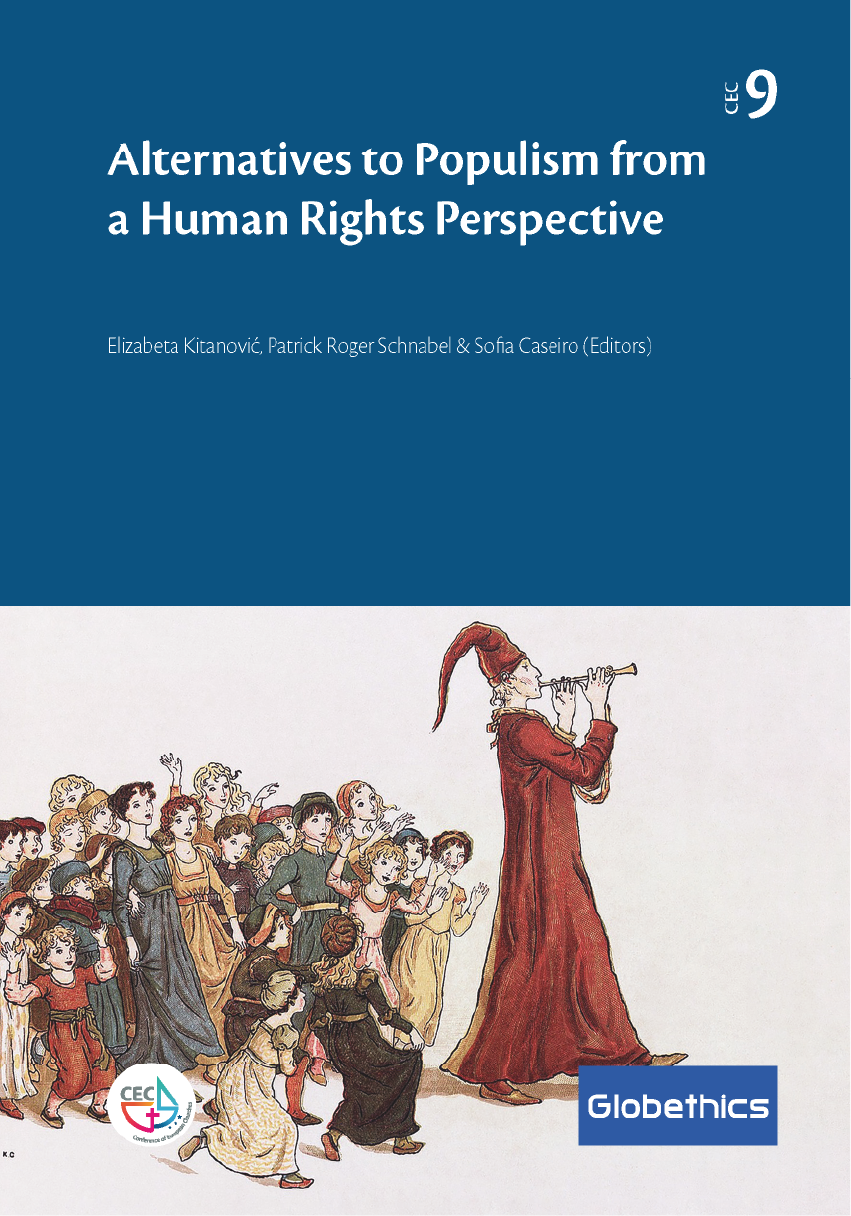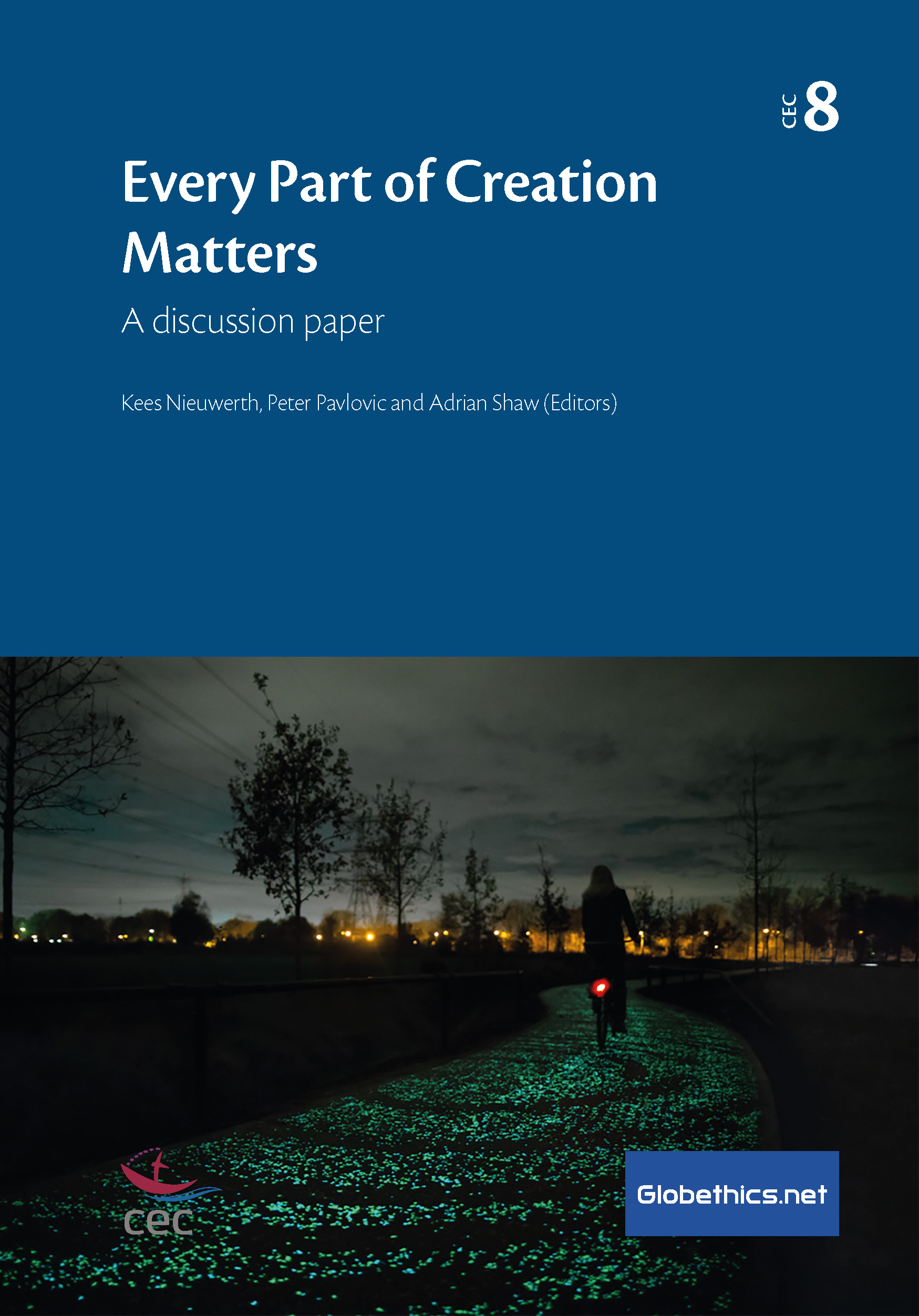Publications: CEC Series
CEC Series
Edition CEC at Globethics. A co-publication with the Conference of European Churches at Globethics
Alternatives to Populism From a Human Rights Perspective
- Editors:
- Elizabeta Kitanović, Patrick Roger Schnabel, and Sofia Caseiro
- ISBN:
- 978-2-88931-531-4 (online version)
- DOI:
- 10.58863/20.500.12424/4291170
- Series number:
- CEC No. 9
- Publication:
- 2023
- Online copy:
- Download it for free
- Order print copies:
- Amazon.com Amazon.co.uk Amazon.fr Amazon.de
- Abstract:
In this book, the Conference of European Churches endeavours to look at the phenomenon of ‘populism’ from different angles and perspectives and shine a light on its links to religion and religious actors. It wants to offer its Member Churches and partners information about and arguments against the populist temptation. It also wants to highlight and draw attention to the many ways in which religious communities are already part of a wider alliance to combat the populist threat. The Conference of European Churches stands firmly in sharing and fostering the European dream of freedom and equality, and dignity for all and everyone.
Every Part of Creation Matters
- Subtitle:
- A discussion paper
- Editors:
- Kees Nieuwerth, Peter Pavlovic, and Adrian Shaw
- ISBN:
- 978-2-88931-490-4
- Series number:
- Globethics.net CEC Series No. 8
- Publication:
- 2022
- Online copy:
- Download it for free
- Order print copies:
- Amazon.com Amazon.co.uk Amazon.fr Amazon.de
- Abstract:
The text summarizes work of the thematic group on Economic and Ecological Justice and Sustainable Future of the Conference of European Churches. The group consists of theologians, experts in ecological and political science, as well as activists from churches across the continent. Caring for God’s creation is an integral part of the calling of the churches. In this publication the Conference of European Churches is asking how this can be done? The book offers a summary of studies and discussions among theologians from churches of different confessional families. A first theological section underlies key aspects of several theological traditions. In a second section, we learn about the European Green Deal aiming to transform the EU into a modern, resource-efficient, and competitive economy with no net greenhouse gases emissions by 2050. The text supports the main aim of the Green Deal, however, raises concerns related to some of its principal parts.


